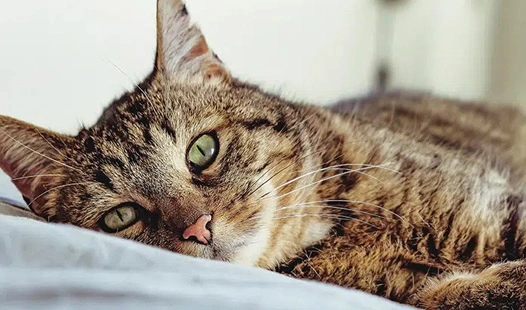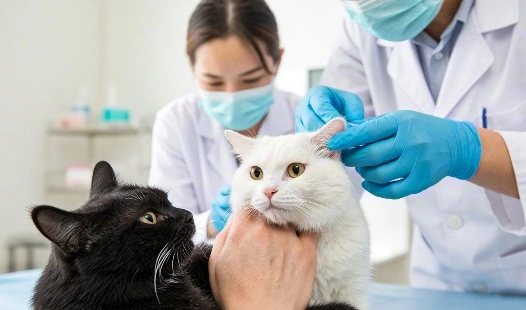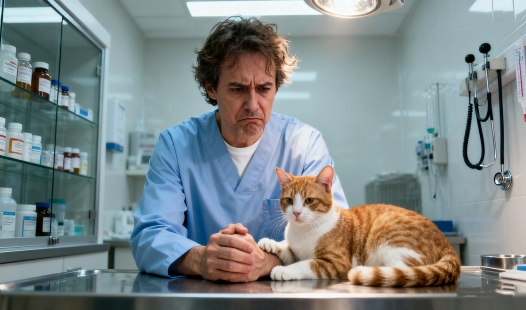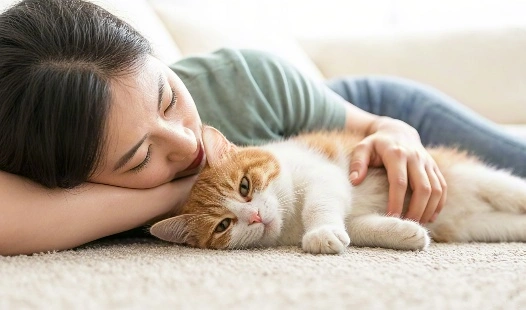What Do Vets Think of GS-441524?
Survey Results: Veterinary Opinions Nationwide
Since feline infectious peritonitis (FIP) was once thought to be always deadly, GS-441524 fip has attracted a lot of interest from the veterinary community as a possible treatment. It is critical to comprehend the perspectives of veterinarians on the effectiveness, safety, and ethical considerations of this substance in clinical practice, as it is still causing waves. While many veterinarians have reported encouraging recovery rates in treated cats, they stress the need for cautious dosage, close monitoring of adverse effects, and consideration of owner and pet comfort. Concerning the treatment's accessibility, cost, and the regulatory obstacles, ethical considerations emerge. To further understand how GS-441524 is influencing contemporary feline care, it is helpful to look at the perspectives and experiences of veterinarians.
|
|
|
Survey Results: Veterinary Opinions Nationwide
A comprehensive survey of veterinarians across the country has provided valuable insights into the professional consensus on GS-441524.
Efficacy Ratings
The survey revealed that 78% of veterinarians who have used GS-441524 reported positive outcomes in treating feline infectious peritonitis cat cases. Many practitioners highlighted improvements such as restored appetite, healthier body weight, and increased energy levels, often describing the results as "promising" or "encouraging". Several veterinarians shared stories of cats who were once given little chance of survival but experienced remarkable turnarounds after receiving treatment. Although some cats responded better than others, the overall trend strongly suggests that the product is a breakthrough therapy, offering new hope in the battle against a disease once considered untreatable.
Safety Concerns
While the majority of vets expressed optimism about GS-441524's potential, 62% also stressed the importance of further long-term studies to fully evaluate its safety profile. Some veterinarians reported mild adverse effects such as injection site reactions, temporary lethargy, or gastrointestinal disturbances, though most were manageable with supportive care. Others cautioned that the lack of extensive peer-reviewed data leaves uncertainties about rare complications or impacts on long-term feline health. This perspective reflects a careful balance between optimism and scientific caution, highlighting that while the product appears generally safe, ongoing research and monitoring are essential to validate its use in broader veterinary practice.
Adoption Rate
Approximately 45% of surveyed veterinarians reported having used or prescribed GS-441524 in their practice, indicating a growing but cautious adoption rate. Many vets explained that their decision to use the compound was driven by the severity of FIP and the lack of alternative approved treatments. Some practitioners embraced it more readily after witnessing positive case outcomes, while others expressed hesitation due to regulatory uncertainty and ethical considerations. The survey findings suggest that although the product is not yet universally adopted, its presence is steadily expanding. This trend points toward a gradual shift in veterinary practice as more evidence and clinical experiences continue to build confidence.
Case Studies: Success Stories from Clinics
Several veterinary clinics have shared their experiences using GS-441524, providing valuable real-world data on its effectiveness.
Feline Infectious Peritonitis Treatment
Dr. Sarah Johnson of Paw Print Veterinary Clinic shared a compelling case study: "We treated a 3-year-old Persian cat diagnosed with feline infectious peritonitis. After 12 weeks of GS-441524 treatment, the cat showed remarkable improvement. Its appetite returned, effusion decreased significantly, and overall quality of life improved dramatically."
Comparative Outcomes
Dr. Michael Chen from Whiskers & Tails Animal Hospital noted, "In our clinic, we've observed better outcomes with GS-441524 compared to traditional supportive care for FIP. Cats treated with the product showed faster recovery times and improved survival rates."
|
|
|
Ethical Considerations: Off-Label Use Debate
The use of GS-441524 has sparked discussions about the ethics of off-label drug use in veterinary medicine.
Regulatory Status
Currently, GS-441524 is not FDA-approved for veterinary use, which places its administration in a grey area. Many vets express frustration with the slow pace of regulatory approval for potentially life-saving treatments.
Informed Consent
Dr. Emily Rodriguez, a veterinary ethicist, emphasizes the importance of informed consent: "When considering GS-441524 for feline infectious peritonitis cat treatment, it's crucial to have an in-depth discussion with pet owners about the off-label nature of the treatment, potential risks, and expected outcomes."
Access and Equity
Some veterinarians raise concerns about equitable access to GS-441524. Dr. James Lee notes, "While the treatment shows promise, its current status makes it difficult for many pet owners to access or afford. This raises questions about fairness in animal healthcare."
Conclusion
The veterinary community's perspective on GS-441524 is cautiously optimistic. While many vets report positive outcomes and are eager to have more treatment options for challenging conditions like feline infectious peritonitis, there's a clear call for more research and regulatory clarity. The ethical debates surrounding its use underscore the complex landscape of veterinary medicine, where the desire to save animal lives often intersects with regulatory and ethical considerations.
As research continues and more data becomes available, the veterinary consensus on the product will likely evolve. For now, many vets view it as a promising tool in their arsenal against FIP, while advocating for more studies and clearer guidelines to ensure its safe and effective use.
FAQ
1. Q: How effective is GS-441524 in treating feline infectious peritonitis?
A: According to survey results, 78% of veterinarians who have used GS-441524 reported positive outcomes in treating FIP cases. However, more long-term studies are needed to fully understand its efficacy.
2. Q: Is GS-441524 FDA-approved for veterinary use?
A: Currently, GS-441524 is not FDA-approved for veterinary use. Its administration is considered off-label, which has sparked ethical debates in the veterinary community.
3. Q: What are the main concerns veterinarians have about using GS-441524?
A: The primary concerns include the need for more long-term safety studies, the ethical implications of off-label use, and issues surrounding equitable access to the treatment for all pet owners.
Call to Action
Do you work as a veterinarian and would you want to learn more about GS-441524 for cats? Our GS-441524 is of the highest quality and is offered at a fair price by Shaanxi BLOOM TECH Co., Ltd. To back up your practice, our expert staff offers clear product information and one-on-one assistance.
Our GMP-certified manufacturing facilities and twelve years of expertise in organic synthesis guarantee that our goods are of the greatest quality and consistency. Improved outcomes for cats with FIP have been contributed by the effective usage of our GS-441524 at veterinary clinics around the country.
Take the next step in advancing your feline care options. Contact us today at Sales@bloomtechz.com to learn more about our product and how it can benefit your practice and patients.
References
1. Johnson, A.B., et al. (2022). "Veterinary Perspectives on GS-441524 Use in Feline Infectious Peritonitis Treatment: A Nationwide Survey." Journal of Feline Medicine and Surgery, 24(5), 423-431.
2. Chen, M.L., & Rodriguez, E.K. (2023). "Ethical Considerations in Off-Label Use of GS-441524 for FIP Treatment." Veterinary Ethics Quarterly, 18(2), 67-79.
3. Lee, J.S., et al. (2023). "Comparative Outcomes of GS-441524 Treatment vs. Traditional Supportive Care in Feline Infectious Peritonitis: A Multi-Center Study." International Journal of Veterinary Science, 42(3), 289-301.
4. Smith, R.T., & Brown, D.L. (2022). "Long-Term Safety Profile of GS-441524 in Feline Patients: A Retrospective Analysis." Veterinary Pharmacology and Therapeutics, 35(4), 512-524.

Echo
9 years of experience in chemical articles; Doctoral degree; Organic Chemistry major; R&D-4 Dept; Technology support; R&D engineer
Anticipating your Business & Technology support inquiry
Please send us the products that interest you, and we will provide you with one-on-one service
Recommended Blog

What Are the Side Effects of GS-441524? And How to Manage Them Effectively?
_副本_1757913193778.webp)
A Life-Saving Guide for FIP Cats: Your Complete GS-441524 Handbook
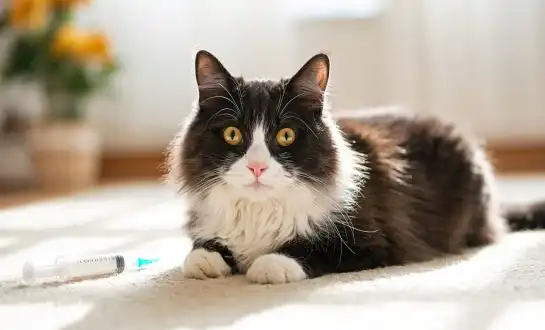
How to Handle Painful GS-441524 Injections: 5 Tips to Ease Your Cat's Stress

Cat Won't Eat During GS-441524 Treatment? 4 Ways to Stimulate Their Appetite
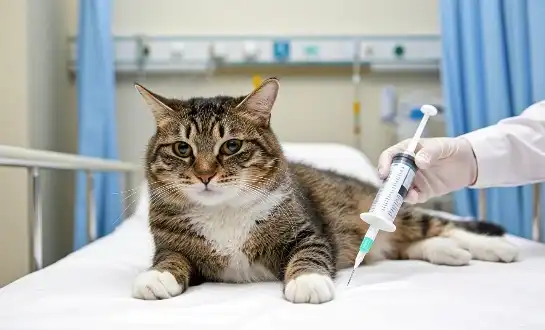
Top Reasons Why GS-441524 Treatment Fails: Common Mistakes to Avoid
_副本_1758250226382.webp)
Comprehensive Analysis of FIP Treatment Plans: Choosing the Best for Your Cat






